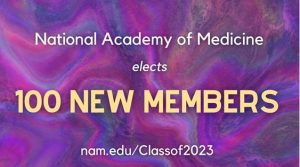Los Angeles, CA (Wednesday, September 2 ,2020) – A study published in The Journal of Family and Economic Issues found that adding a financial education component to government-sponsored auto-enrollment retirement savings programs like CalSavers (rolled out in July 2019) can increase financial knowledge, raise awareness about the need for retirement planning, and solve the retirement crisis. Moreover, it can close the racial and ethnic gap by boosting retirement savings for Latinos living in the U.S.
The community-based study led by Luisa Blanco, Professor at Pepperdine University School of Public Policy, in collaboration with Kenrik Duru, Professor of Medicine at the University of California Los Angeles (UCLA), Carole Mangione, Chief of Division of General Internal Medicine & Health Services Research at UCLA, the Mexican American Opportunity Foundation (MAOF), and New Economics for Women (NEW), conducted research in neighborhoods in L.A. County including: Canoga Park, City of Commerce, Downtown and Van Nuys.
“Our study is one of the first to consider the impact of an educational intervention toward promoting retirement savings among people who typically don’t have access to employer or auto-enrollment retirement accounts,” said Luisa Blanco, lead researcher and the study’s author.” Latinos tend to lag significantly in retirement preparedness when compared to other racial and ethnic groups, so this study is vital,” she added.
The study evaluated the impact of an education component in promoting retirement savings among low-and-moderate income predominantly Spanish-speaking Latinos living in Los Angeles who lack access to an employer-sponsored retirement account. Researchers provided 142 participants (85% foreign-born, 87% women) between the ages of 30-64 with key information in Spanish regarding retirement financial planning and utilized “behavioral nudges” to encourage participants to open a government-sponsored “my Retirement Account” (myRA), which is similar to the state’s CalSavers plan. They discovered that a culturally-sensitive educational program can be an effective tool in helping to solve the retirement savings crisis and ensure greater racial/ethnic equity in older age Latinos.
According to the study, Latinos face higher barriers for retirement preparedness. Even after controlling for age and income, they are less likely to access an employer-sponsored retirement plan in comparison to Whites. In 2018, U.S. households showed that while 21% of Whites had no retirement savings, the numbers were much higher for minorities with 36% Blacks and 39% of Latinos showing no retirement assets. Low levels of retirement preparedness and Social Security literacy, as well as significant behavioral and cultural barriers toward financial planning, are at the center of the problem.
“Through our programs we meet older people who should retire, but because of the lack of financial education and planning, they must continue in the workforce in order to keep shelter and food on the table,” said Susy Contreras, MAOF Community Development Director. “This is why providing financial knowledge is key to the wellbeing of the Latino community, particularly older Latinos,” she added.
As the first study of its kind, researchers hope their findings will help guide design and implementation of future government-sponsored retirement savings plans like CalSavers. “While Latinas are living longer, the reality is that their earning potential over a lifetime is still 40% less than that of white men’s earnings,” said Maggie Cervantes, Executive Director at NEW. “Therefore, we need to ensure that good financial habits, through financial education, create results that lead to long-term economic security,” added Cervantes.
In 2021, Blanco, in collaboration with April Thames, Associate Professor of Psychology at the University of Southern California (USC), Isaias Hernandez, Executive Director at Eastmont Community Center (ECC), and MAOF will undertake a study that rolls out a mobile intervention that improves the money management skills of 150 Latino participants. The intervention will replicate the role of a financial coach via a mobile device. Participants will receive text messages with ideas on how to manage their money and set goals.
“A simple, culturally and linguistically appropriate educational intervention can go far in making retirement savings attainable and doable for everyone. Our parents didn’t talk about savings, so we typically don’t plan for it. Latinos often think, ‘I’m always going to work.’ The reality is that we’re not always going to work, and we need to prepare for our future,” said Blanco.
For more information about the study, and/or for interviews, contact Evelyn G. Aleman at (818) 881-7976 office, (818) 943-2481 cell, or evelyn@mipr.net.
# # #




